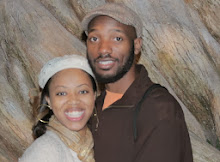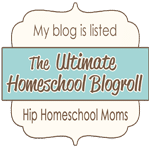Third grade is
typically the time when children are asked to pair their reading and writing
together. Though many types of writing
takes place this year; book reports are often first. Advancing past copywork,
narration, and basic Q & A-type questions, third graders must apply thought
and some level of summation or analysis to their writing. (Some second graders
are taught this later in the year.)
In order to teach
him how to write book reports effectively, I needed to first strengthen his
summarizing skills. Because he is a new third grader I am starting only with
the basics. As the year progresses, I will add more “meat” (theme, point of
view, plot, etc) as he is ready.
This week, we began
by using some of his favorite picture books to summarize using a graphic
organizer that I downloaded from Homeschool
Classroom.
The organizer has 5 parts:
1.
Title
2.
Characters (Who?)
3.
Setting (When & Where)
4.
Problem (What’s Wrong?)
5.
Solution
We read the book
together and we stopped to add these parts in as we discovered them in our
reading. I like to stop so he can see the order of the story unfolding.
Once the graphic
organizer is finished we move on to write our book report by transferring the
information into sentences.
Just like the organizer, I tell him the report has
5 parts:
1.
Title
2.
Author
3.
Summary (The five parts of the
organizer written in “paragraph” form.)
4.
Opinion (I like this book because…)
5.
Credit (By: _______________(insert
child’s name)
I created a book
report template for him that includes all of these
items. We will work through the process together until I feel he is able to
write book reports on his own using this method. Halfway through the year (I
hope) I will begin adding chapter books for him to summarize and report
on—which will increase the content and depth of his reports, adding some of the
“meat” discussed earlier. For now, I am giving books that he is interested in
so he can appreciate what he is reading, summarizing, and reporting. However,
the opinion portion will be replaced with a critique portion in upper
elementary. Realistically, every book he reads he will not like.
I like to begin teaching this process with the
book A Tree Named Steve. (The link above has some good ones too!)
You want to make sure you pre-read your books so
that the characters, setting, problem, and solution can be easily identified by
your reader.
EXAMPLE:
Graphic Organizer
1.
Title A
Tree Named Steve
2.
Characters Adam, Sari, Lindsay, Kirby, Mom & Dad
3.
Setting In the yard…
4.
Problem Steve died in a storm.
5.
Solution Dad wrote the kids a letter to help them feel better.
After
we read this book, my son filled in his organizer with the above information. I
did my best not to interfere unless he was totally off. I still have a small
issue with his solution but it isn’t wrong, so I just let him be a creative
thinker without me ranting. (Dad did not write the letter to make the kids
better. He wrote it to inform the kids of Steve’s death. But, hey! It was close
enough for a 7 year old.)
EXAMPLE: Book
Report
Our
Tree Named Steve
Alan
Zwiebel
This book is
about a tree who was a friend to Adam, Lindsay, and Sari. The tree died from a
storm in front of their yard while they were visiting grandma’s house. Dad
wrote his kids a letter to help them feel better. I like this book because the
tree helped the kids and I would want it to help me too.
By:
Peanut
(He
wrote his actual first and last name on his report)
As you can see, it
is very basic. However, he understands what key elements he needs to summarize
and how to offer his opinion. Also, it is very important for him to see that
not all the characters he listed were a part of the summary. (This is prepping
him for main character versus supporting character later on in the year when we
arrive at summarizing chapters books.)
Blessings,
Joyice, The Writing Enhancer


















0 comments:
Post a Comment
Thank you for your thoughts!